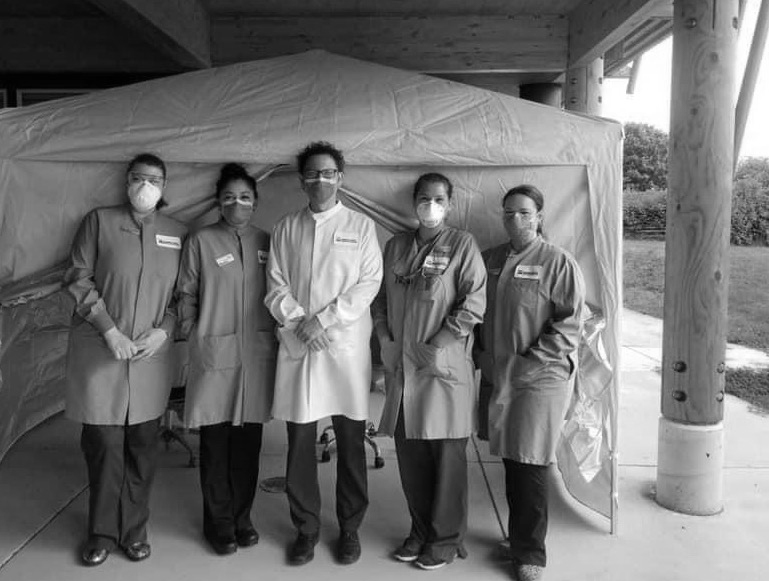Dental therapists matter to communities. As highly trained dental care professionals equipped to perform routine and preventive services working as part of the dental care team, they increase access to care, expand the dental team and promote economic development. Especially during the COVID-19 pandemic, identifying new ways to provide care to communities in need is essential. Dental therapists are meeting the need. And they are achieving results.

As we kick off February as National Children’s Dental Health Month, WKKF will feature several practicing, community dental therapists and share how they are creating jobs, reaching underserved communities, providing cost-effective care, increasing access through innovation and making a difference.
With WKKF support, dental therapists have been successfully working in the United States as part of the dental care team for over 15 years. Dental therapy is currently authorized in 12 states with statewide legislation being considered in 8 additional states and more than 20 states actively exploring the profession. Dental therapists provide routine preventive and restorative care in more than 50 countries worldwide.
“For Want of a Dentist: The Rise of the Dental Therapy Movement in Tribal Nations and the U.S., Lessons from the W.K. Kellogg Foundation”
Increases access to care
More than 58 million Americans are unable to receive dental care in the communities in which they live, a reality that has been exacerbated by the onset of the global pandemic. In addition to private practice, dental therapists are able to increase access to care by providing local care through schools, senior centers, mobile clinics, rural community clinics and Tribal clinics, among others, under the off-site supervision of a dentist. Dental therapists have made it possible to decrease travel and wait times for patients.
EXPANDS THE DENTAL CARE TEAM
Dental therapists expand the dental care team. Working under the supervision of a dentist, the care dental therapists provide complements dental hygienists and dental assistants, including oral health education and common dental procedures such as filling cavities and extracting already loose teeth. Dental therapists bring new capacity and flexibility to the dental care team. By focusing on preventive and routine services, they free up dentists to provide more complex care and services to their patients.
PROMOTES ECONOMIC DEVELOPMENT THROUGH JOB CREATION AND BUSINESS GROWTH
Hiring dental therapists is a cost-effective way for dentists to grow their practices. With a dental therapist on the team, dentists are able to perform more advanced procedures, serve more patients and earn additional revenue. Dental therapy leads to job creation and business growth.
The role of a dental therapist provides an opportunity for a local high school graduate to attain a specialized degree and a good paying job, while also allowing them to live and work in their own community.
Follow everychildthrives.com for updates and check out WKKF’s dental therapy e-resource guide for information.
Dental Therapists are Cost-Effective Providers that Work
Dental therapists are both economically viable as well as job creators and revenue generators for their practices and their communities. Here are the findings from the Alaska Dental Therapy program.
- The Dental Therapist program generates 76 full-time jobs per year with a net economic effect of $9.7 M.
- Aggregate patient savings amount to $40,000 per year per dental therapist.
- Dental therapists bring in $150,000 to $250,000 more than they cost to employ them and their dental assistant.
- Since 2010, early childhood caries have steadily declined nationally, and untreated early childhood caries in Alaska Native/American Indian preschool children has significantly declined. The 14% reduction in untreated decay is statistically significant and may be the first measured reduction in decay in this age group ever recorded at a national level.
Studies have repeatedly shown that dental therapists increase access and are cost-effective providers. Data also shows high levels of patient satisfaction metrics from those treated by dental therapists.
Dental therapists are currently practicing in four states – Alaska, Minnesota, Oregon and Washington – and authorized in eight additional states with a number of other states exploring dental therapy.
More than 50 countries allow dental therapists to provide routine preventive and restorative care.














Comments